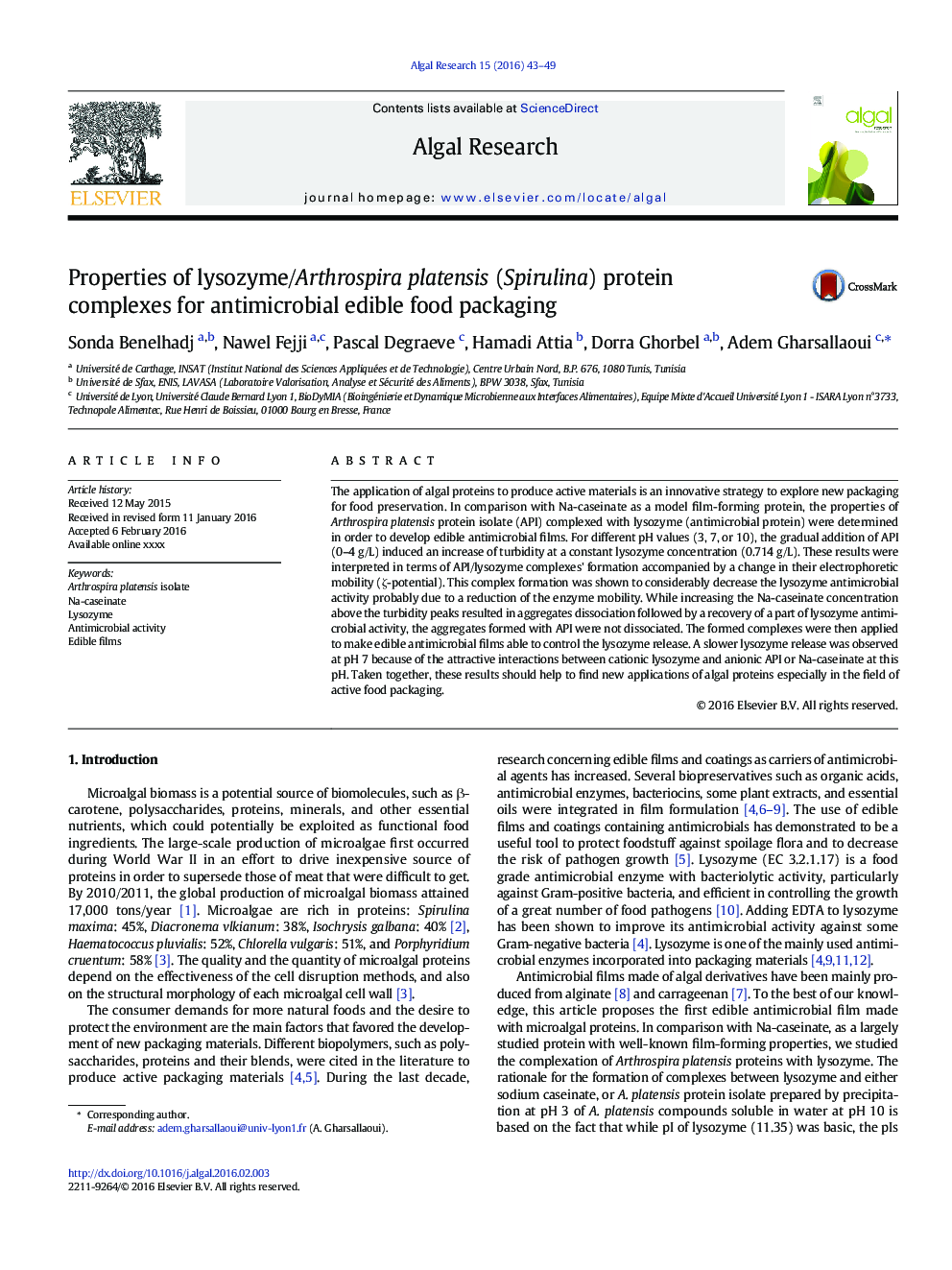| Article ID | Journal | Published Year | Pages | File Type |
|---|---|---|---|---|
| 8087290 | Algal Research | 2016 | 7 Pages |
Abstract
The application of algal proteins to produce active materials is an innovative strategy to explore new packaging for food preservation. In comparison with Na-caseinate as a model film-forming protein, the properties of Arthrospira platensis protein isolate (API) complexed with lysozyme (antimicrobial protein) were determined in order to develop edible antimicrobial films. For different pH values (3, 7, or 10), the gradual addition of API (0-4 g/L) induced an increase of turbidity at a constant lysozyme concentration (0.714 g/L). These results were interpreted in terms of API/lysozyme complexes' formation accompanied by a change in their electrophoretic mobility (ζ-potential). This complex formation was shown to considerably decrease the lysozyme antimicrobial activity probably due to a reduction of the enzyme mobility. While increasing the Na-caseinate concentration above the turbidity peaks resulted in aggregates dissociation followed by a recovery of a part of lysozyme antimicrobial activity, the aggregates formed with API were not dissociated. The formed complexes were then applied to make edible antimicrobial films able to control the lysozyme release. A slower lysozyme release was observed at pH 7 because of the attractive interactions between cationic lysozyme and anionic API or Na-caseinate at this pH. Taken together, these results should help to find new applications of algal proteins especially in the field of active food packaging.
Related Topics
Physical Sciences and Engineering
Energy
Renewable Energy, Sustainability and the Environment
Authors
Sonda Benelhadj, Nawel Fejji, Pascal Degraeve, Hamadi Attia, Dorra Ghorbel, Adem Gharsallaoui,
